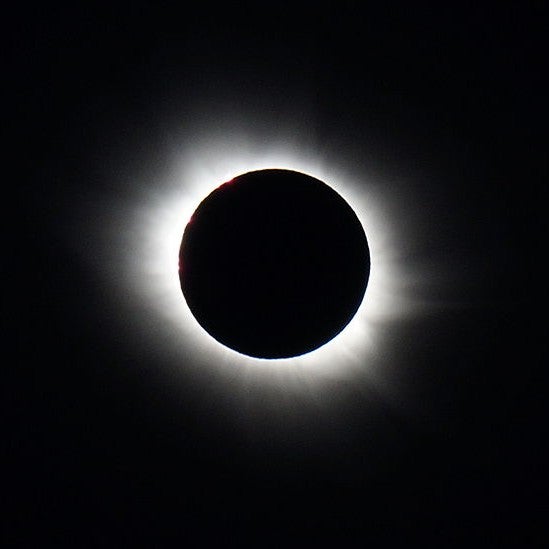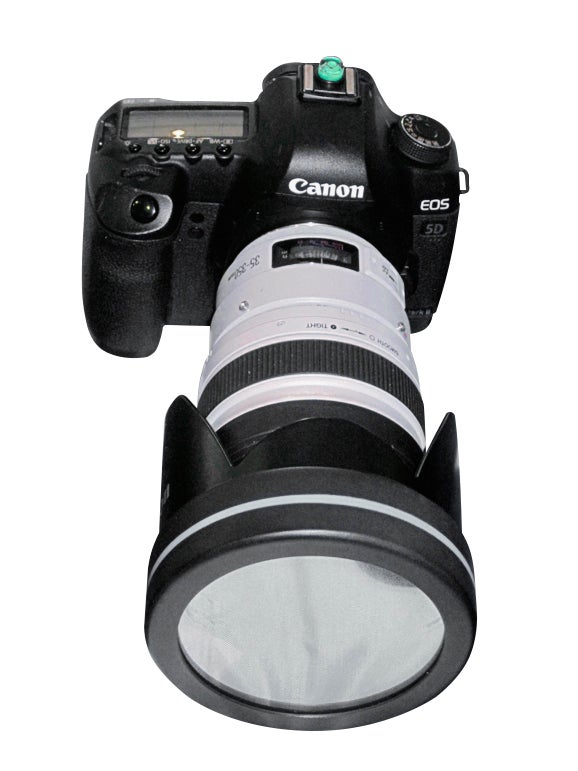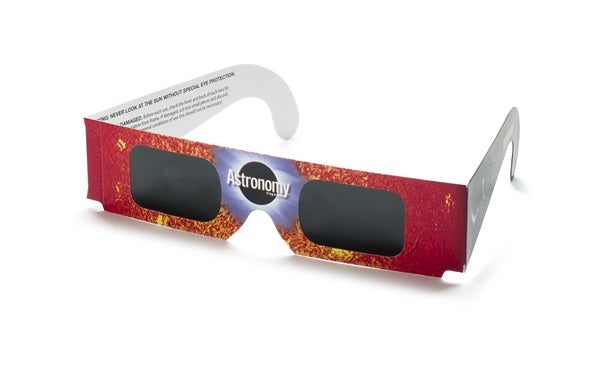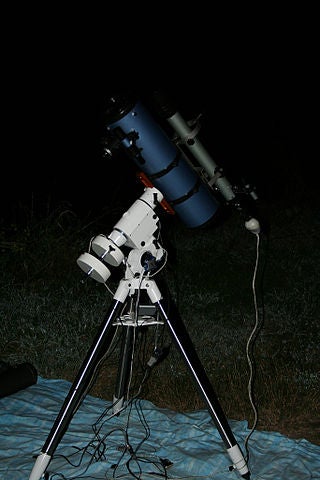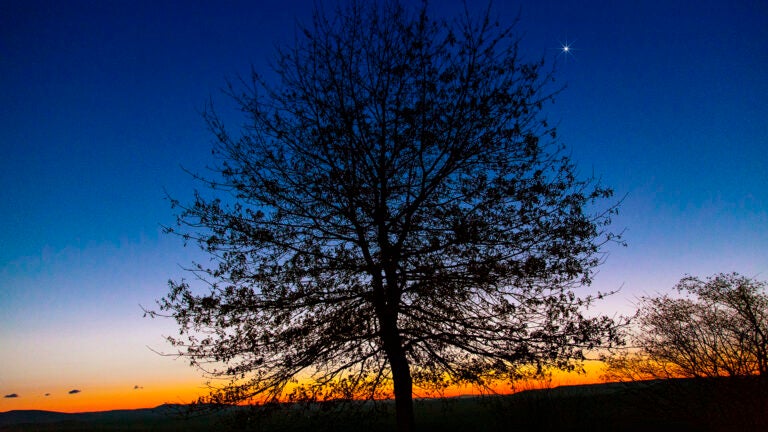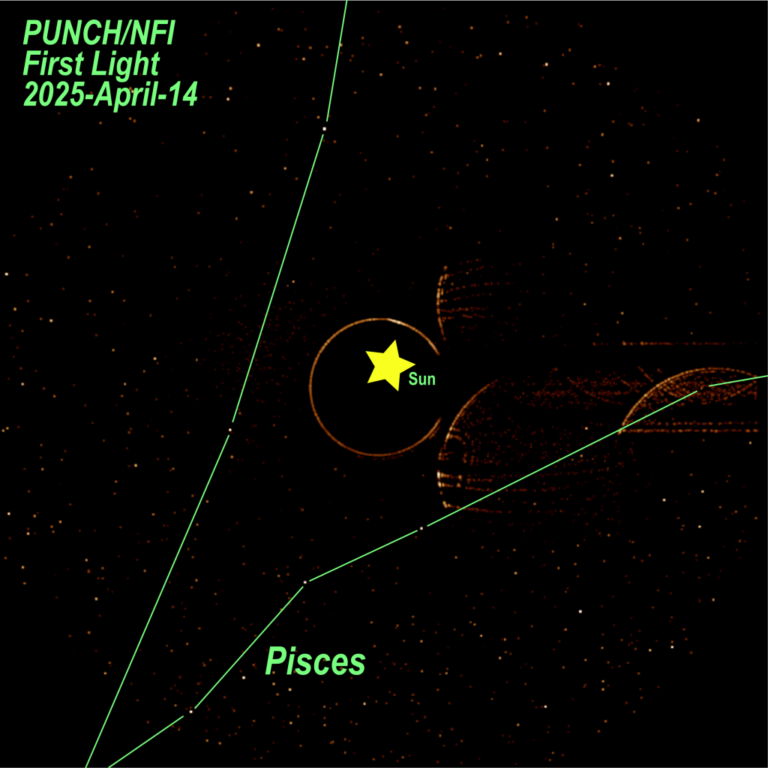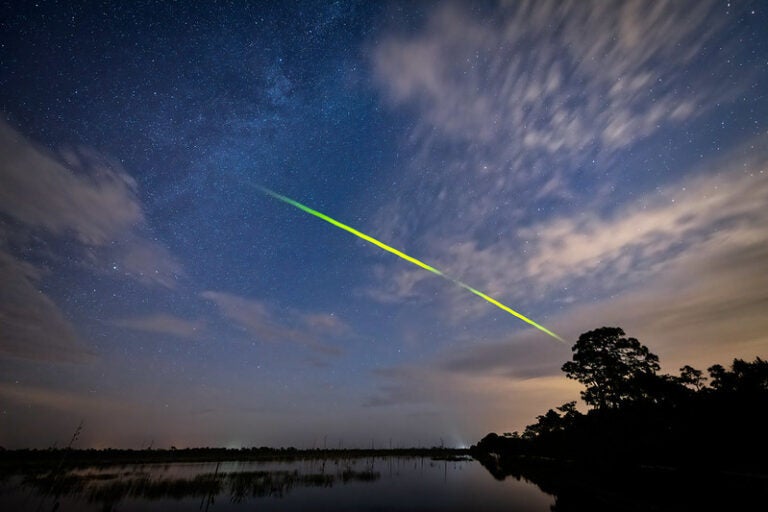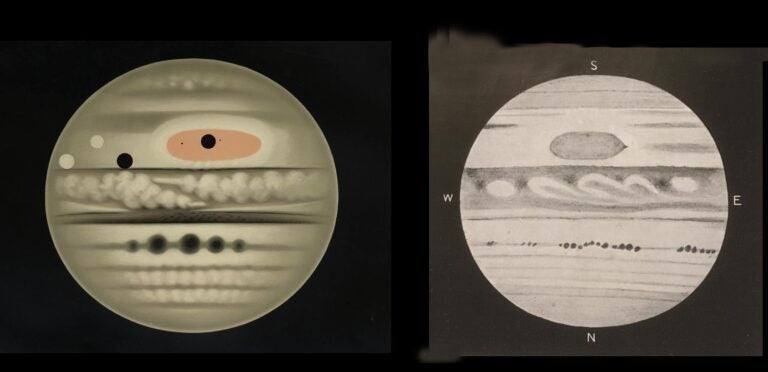1. Sunscreen
When someone says, “solar safety,” this is what I think of. So should you. And here’s something to note: If your bottle of sunscreen is more than two years old, replace it. That’s the standard shelf life for this product. If you see someone who has forgotten sunscreen, please be a peach and share. You also might want to bring an umbrella for some welcome shade.
2. Water
August 21 will be warm everywhere in the United States and hot in many places. Even large events may run out of this vital fluid. Don’t leave home without it. If you’re driving, bring at least a case of bottled water with you. For just a couple of bucks, you’ll be guaranteed not to dehydrate.
3. Approved solar filter
Whether you use eclipse glasses, a homemade filter using solar Mylar, or a #14 welder’s glass, you will need this to view the partial phases. Also, if you plan to view the partial phases through any equipment (binoculars, telescope, etc.), you will need approved solar filters — not eclipse glasses — for each of them.
You’ll want to document the day and the activities surrounding the event. My advice remains firm, though: Do not photograph the eclipse! For those of you ignoring this sage wisdom, also pack a tripod.
5. Transistor radio
Some events (like the one in St. Joseph, Missouri) will be broadcasting as the eclipse happens. Others will be reporting eclipse-related news, including important items like traffic and weather. The nice thing about a radio is that the broadcast will come in no matter how many people are listening. That won’t be true if you’re relying on Wi-Fi or cell service. Make sure your radio’s batteries are fresh.
6. Binoculars
This is a great way to get close-up views of the corona during the total phase of the eclipse. And during the half-hour or so prior to totality, you can scan the sky away from the Sun to try to locate Venus (and Jupiter from locations east of Idaho).
7. An eclipse guide
Several are available as books or e-books. You might, for example, check the selections at Astronomy’s online store, www.myscienceshop.com.
8. Food or snacks
Certainly this isn’t as critical as water; I mean, you’re not going to starve. You probably will get hungry waiting for the eclipse to start, however. Don’t assume your location will have food. We expect millions of people to flock to events along the center line. It’s quite possible that even well-stocked stores and supply stands will sell out even before you arrive. Consider having some healthy snacks or premade sandwiches. Such items can help you avoid fast food and give you options in more culinary-challenged communities.
9. Medicine
Be sure you have any prescriptions you need to take with you. And some pain medication also is a good idea. Sometimes too much Sun gives certain people headaches, and too much standing for older folks can be painful. Which leads to . . .
10. Chairs
Bring at least one chair (fold-up varieties pack best) for each person in your party. Even if you attend an organized event, don’t assume anyone will provide seats. Do assume that if there are seats, they will already have been taken. You’re not going to want to stand for (a minimum of) three hours, and if you’re like me, you don’t do well lying on the ground. The best chairs you can bring let you sit upright or recline. Actually, if I weren’t hosting an event, I’d bring the nice air mattress we keep for those occasions when several guests visit.
11. Toilet paper
Let’s see, millions of people on the road, rest stops few and far between . . . you fill in the details.
12. Hand sanitizer
See #11.
You won’t forget the ones on your face, but something may happen to that pair.
14. Kids’ stuff
I have no children, so I can’t specify items. I can, however, advise you to bring whatever you will need to keep your offspring happy, comfortable, and occupied. Be aware that, in many locations, cellphone and Wi-Fi access may be limited or nonexistent. Bring along something that doesn’t rely on wireless access to entertain your kids. You may discover, much to your chagrin, that your young children do not share your appreciation or awe for the eclipse. Obviously, you’re a terrible parent. But don’t worry; they’ll be seven years older when the 2024 eclipse rolls around.
15. Broad-brimmed hat
This will keep the Sun off your head and face, and also your neck if the hat’s brim is wide enough. You’ll probably sweat, but that’s a reasonable trade-off. Keep drinking water.
16. Power inverter
You can’t plug most laptops or video players directly into a car. A small DC-to-AC power inverter will let your passengers play games or movies for the whole length of the trip without having to worry about draining the batteries in their devices. Another similar device is a car-lighter-plug-to-USB socket. Such adapters can operate or charge items that don’t require much power, like cellphones.
17. Pillow
Actually, bring a pillow for every reclining chair you take along. Your passengers also might like to use these in the car if the ride is long.
18. Sunglasses
Remember, despite their name, sunglasses are not for viewing the Sun through. They are for providing eye comfort when you look at everything else.
19. Cash
If you meet me at the event I’m hosting in St. Joseph, Missouri, you can thank me with this. Seriously, some vendors at eclipse events may not take credit or debit cards, and, even for those who do, with the huge numbers of people in transit, paying with cash may save you some serious time.
20. Insect repellent
The farther along the shadow’s path toward the southeastern United States you set up, the more important this item will become.
I list this mainly for completeness. Does anyone ever forget to bring a phone anymore? Certainly nobody under 35. Now, permit me one further note about this item. It’s probable that at large events (especially in smaller towns), the number of people accessing their cellphones will overwhelm nearby cell towers. Be sure to tell anyone tracking your movements that you may be out of touch for a significant amount of time. If you need definite access to communication, consider renting a satellite phone for the weekend. I hope you don’t need it, but a small investment will yield peace of mind.
22. Telescope
But reduce the hassle by bringing along only the minimum number of items to go with it. I won’t detail them here because everyone’s scope “kit” is different. Before you pack it, set up your scope either outside in the daytime or indoors, and verify that you have a complete system.
23. Astrophoto gear
If you’re going to photograph the eclipse, you’ll need more than a camera. Make sure you have whatever essentials you need. Keep these items together, preferably in the same bag or container as your camera. Check them twice, then have someone else check them while you watch.
24. Odd parts and tools
If you have a telescope, you’ll understand what I mean. As an example, some of the things my kit contains are extra knurled knobs, an Allen wrench set, half a dozen small ziplock plastic bags, at least two each of three types of small clamps, a micro-screwdriver set (also useful for fixing eyeglasses), lens-cleaning paper, at least a dozen each of two sizes of plastic zip ties, extra hardware for any tripod-mounted setups I may attempt, extra solar filters, and, you guessed it, duct tape.
25. Personal items
You won’t be hiking the Himalayas or venturing into the deep ocean aboard a submarine to experience this event. You’ll have room for a few extras, especially if you’re driving. If there’s something that’s especially meaningful to you and you want to bring it along, no harm done.
This list is originally from our August 2017 special eclipse issue.

